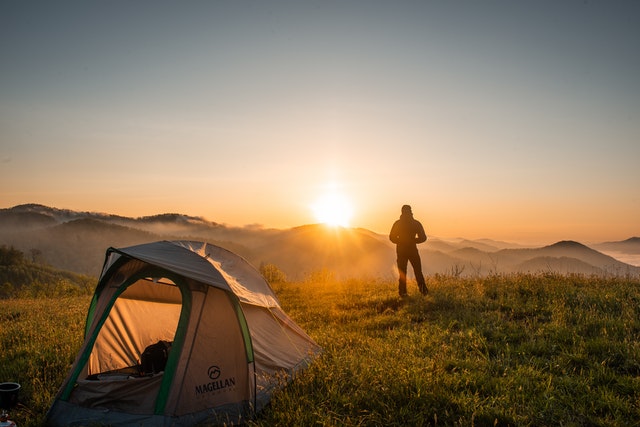If you like to go on solo camping trips, or it’s your first time to try, safety is a top priority. As you will learn, camping alone can be a great way to get away from the hustle and bustle of everyday life. You might even find that it’s more enjoyable than when you have company. But before you head out into the wilderness, here are some safety precautions to take.
Have Some Survival Skills
It is always essential to have some basic survival skills. This includes learning how to start a fire, build a shelter from natural materials in the area, and recognise poisonous or edible plants. It’s beneficial if you know how to identify any dangerous wildlife that may be present in your camping location.
It also helps to have basic fishing skills and even carry fishing gear and baits such as fishing boilies. You won’t go hungry if trapped on a site where fish are in plenty. Still, fish make a delicious and fresh alternative to packed meals.
Protect Yourself from the Elements
It is crucial to have a tent or shelter that can protect you from rain and sun. If there are any poisonous plants, stay away from them and wear clothes that protect you from bugs and snakes -always wear closed-toe shoes.
Have an escape route planned out just in case things get out of hand, like the weather changes or you get attacked by animals. Also, make sure there’s enough room in the shelter for you to sleep comfortably.
Stay Safe at Night
Your campsite must have a fire pit and some safety provisions to not only keep you warm but ward off animals. It also helps if there’s a freshwater source nearby.
Learn About Your Camping Location
Before the trip, try to do some research on the location and what you might encounter there. This way, if anything goes wrong, you will know how to react.
Keep Your Phone Charged
It is always essential that your phone stays charged while camping alone as a backup flashlight or emergency contact option for anyone who’s looking for you. Also, have a location tracker app on your phone, and make sure you have a spare battery pack to keep your phone charged at all times. Ideally, have an alternative means of communication just in case there’s no mobile signal.
Carry Extra Food and Water Supplies
While camping, you will need water and food. Pack extra portions to make sure you have enough supplies if you extend the trip or get lost. Pack more nonperishables and energy-boosting foods.
Use a Personal Locator Beacon
If you are worried about getting lost or an emergency, use a personal locator beacon that sends out a signal in case of an emergency so that people can find and help you quickly. It will also give them your location when looking for you.
Make Sure Someone Knows Every Detail of Your Plans
Having an accountability partner who knows the details of your trip makes it easier for you to get help when you need it. Let a friend know where you’re camping, the paths you’ll use, and when to expect you back. Also, let them know the exact times you’ll be communicating with them every day.
Your safety depends on how well you prepare for the trip. Spend enough time planning the trip to make sure it’s fun and safe.
